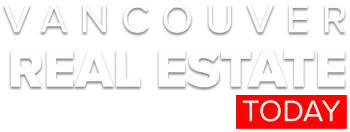In Canada, the most common mortgages are 5-year fixed-rate loans with 25-year maximum amortization period, but there are a variety of options. Terms typically range between six months and 10 years, and you can typically choose an amortization period of any length below the max (currently 25 years with insured mortgages).
Requirements to get a mortgage vary by lender, but typically you’ll need:
Credit score of at least 680
Total debt not exceeding 44% of your income
Proposed housing costs not exceeding 39% of your income (includes mortgage payments, property taxes, heating, and 50% of applicable condo fees)
There are cases in which these requirements are flexible—and there are mortgage options for people with less-than-perfect credit, but if you’re looking to get a competitive interest rate on a home loan, these are the goals to keep in mind.
What other options do you have? Let’s take a look.
Insured mortgages
Insured mortgages, also known as high-ratio mortgages, are any home loan with a down payment of less than 20%. Because your down payment is less than 20%, lenders view your mortgage as higher risk, so you’ll need to buy CMHC insurance to cover it. The maximum amortization period for an insured mortgage is 25 years, which means you’ll have 25 years to pay back your loan in full.
Uninsured mortgages
Uninsured mortgages, also known as conventional mortgages, are home loans with a down payment of 20% or more. Since you’re putting down so much cash upfront, you don’t have to pay for mortgage insurance. With this type of loan, you have the option to take a longer amortization period of up to 30 years. The catch is that you’ll end up paying more in interest over the life of the loan.
Open vs. closed mortgages
When you take out a mortgage, you enter into an agreement with a lender. If you break that agreement, there are typically penalty fees that can amount to thousands. In a closed mortgage, this even includes paying off your mortgage earlier than is laid out in the contract—including via selling your home. For borrowers who plan on staying in their home for the life of their mortgage, this isn’t a problem.
But if you want the flexibility to sell your home or pay it off early, an open mortgage is right for you. The interest rate tends to be higher than closed mortgages with similar terms, but you could end up spending less overall if you plan to pay it off ahead of time.
Fixed-rate vs. variable-rate mortgages
A fixed-rate mortgage is a home loan whose interest rate stays the same for the term of your mortgage. With this type of loan, your monthly payment will remain the same, so you always know what to expect and you can easily budget around your house payment.
As the name suggests, the interest rate on a variable-rate mortgage will change based on the prime rate set by the lender. These loans often have low introductory rates that attract buyers looking for a lower payment, but they can be risky. If rates rise a lot over a short period of time, your monthly payment will shoot up too.
Which mortgage is right for you?
Which mortgage is right for you will depend on your individual circumstances and plans for the future. No matter what type you choose, it's important to shop around and compare rates from different lenders before committing. Once you’ve decided, you should also get pre-approved, which will give you an idea of how much you can borrow and what your interest rate will be.
Buying a home is a big decision, but it's also an exciting one. By taking the time to choose the right mortgage, you can make the process a little bit easier and ensure that you're getting the best possible deal.
Looking for a new home?
We’ll help you find it—and then make it yours. Our local expertise and our relationships with trusted lenders and other real estate professionals will help you get the best deal possible on your dream home.
| Let's Go |

